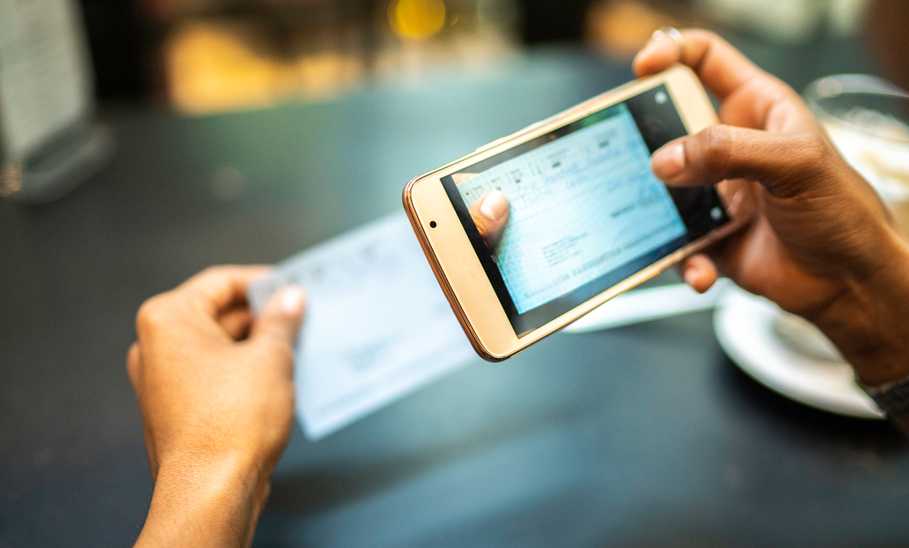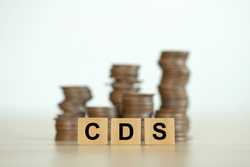Personal Check Vs. Certified Check Vs. Cashier's Check

Our evaluations and opinions are not influenced by our advertising relationships, but we may earn a commission from our partners’ links. This content is created by TIME Stamped, under TIME’s direction and produced in accordance with TIME’s editorial guidelines and overseen by TIME’s editorial staff. Learn more about it.
Checks continue to be a popular non-cash payment method for individuals and companies. They're considered safe, and in most cases, you can track them. However, different types of checks—personal checks, certified checks, and cashier's checks—serve different purposes, so it helps to understand the differences before using any of them.
A personal check is a document issued by a bank that authorizes payment from your bank account to the recipient of the check, also known as a payee. Personal checks feature the bank or credit union's banking information and account details.
The recipient or payee can cash the check at their bank, credit union, or a check cashing service for a fee. The funds are then drawn from the sender’s checking account.
Some banks, like Axos and First Citizens Bank, offer free personal checks to qualifying customers. Otherwise, you may be able to order them online, including through major banks such as Chase.
With a cashier's check, the bank or credit union creates a slip of paper to officially receive payment, but it prints the amount and recipient's name on the check before presenting it to the sender (payor).
Instead of being drawn from your account when the recipient cashes the check, the funds are drawn when the cashier’s check is created. Your financial institution then holds the funds until someone cashes the check. In this sense, the bank” guarantees” the funds. Most financial institutions offer cashier’s checks to their customers, but there is usually a small fee for the privilege.
A certified check is similar to a cashier’s check in that the funds are withdrawn from the payor’s bank account when the check is issued, not when it’s cashed. The check must be certified by the bank or credit union where the check is drawn.
When you order a certified check, your bank will verify that your account is in good standing and that you have sufficient funds to cover the check amount. Your bank will hold the funds until the recipient cashes the certified check, guaranteeing the funds to the recipient.
As with a cashier’s check, you will most likely have to pay a fee to your financial institution for certifying a check.
The following table highlights some key differences between personal checks, certified checks, and cashier’s checks.
| Personal check | Certified check | Cashier’s check |
|---|---|---|
Funds are withdrawn from your account | Funds are withdrawn from the financial institution | Funds are withdrawn from your account |
Funds aren’t held, guaranteed, or earmarked for payment | Funds are guaranteed by the bank | Funds are guaranteed to be in your personal account |
Bank may or may not charge a fee for a book of checks | There is usually a fee to certify a check | There is usually a fee to purchase a cashier’s check |
Write and sign one on your own at any time | Certified at a financial institution | Created and issued by financial institution |
Don’t need proof of ID to create and send one | Need to provide ID at financial institution | Need to provide ID at financial institution |
You can use both a certified and cashier's check for larger purchases where you want to guarantee payment, such as for a car or a home down payment. While both payment methods guarantee the funds will be there when the recipient goes to cash the check, there are some differences between the two.
For one, the average cost of a cashier's check tends to be slightly less than a certified check, though it may only be a difference of a few dollars. Both offer guaranteed payment, but with a cashier's check, the funds are held with the financial institution, whereas with a certified check, the funds are held in your account (and you can’t spend it).
Both checks have a watermark indicating an official check from the financial institution, but with a certified check, you sign the check, while the financial institution signs a cashier’s check.
There are some significant differences between a cashier’s check and a personal check, one of them being that a cashier’s check is guaranteed funds. With a personal check, funds aren’t taken out until the recipient cashes the check and aren’t guaranteed. In other words, you can use the money held in your account at any time and there may not be enough to cover the withdrawal for your personal check.
If that happens, the check will bounce, and you can be charged a nonsufficient funds fee. The recipient will not receive their payment, so you may have to arrange another form of payment or write a new check.
Recipients typically don't have to worry about nonpayment for a cashier’s check since the funds are withdrawn and set aside at the financial institution until the check is cashed. Because of this service, those who order a cashier’s check will have to pay a fee. You must work with your financial institution directly to order a cashier’s check.
For personal checks, you can order a booklet of them through your financial institution, sometimes at no cost. You can also order them from reputable third-party companies—you can even customize the design. These tend to cost far less per check than cashier's checks.
You don’t need to contact the financial institution whenever you want to write a personal check. All you need to do is fill it out correctly—with the recipient's name, payment amount, and your signature—and send it to the payee.
Unfortunately, cashier's checks and certified checks, though secure, can be susceptible to fraud. For example, you might be presented with a fraudulent cashier’s or certified check when trying to sell something through Facebook Marketplace or Craigslist.
Another common scam occurs when thieves “accidentally” overpay for something and request that you return the difference. In either situation, since the check is fraudulent, you're essentially giving away your item (like a car) or money with little chance of getting it back.
Before accepting a certified or cashier’s check, look for the financial institution that may have issued it and look up its contact information independently. Don't rely on the contact information on the cashier's or certified check as that may also be fraudulent. Then call them to confirm the check is legitimate.
Checks aren’t the only non-cash payment options. Alternatives include payment apps and wire transfers.
Payment apps such as Paypal and Cash App are highly secure and allow you to send and receive money with ease.
You can link a bank account to fund your Paypal or Cash App account or have any payments you make taken directly from the linked account. In many cases, these apps are free to use, and transfers are almost instant.
Wire transfers are a good option for those wanting to send a large amount of money without using a paper check. All you need is the recipient’s name and bank account details such as the routing and account number.
Your bank may call you to confirm payment information before the wire transfer gets sent. You may also need to pay a fee for a wire transfer—international ones tend to cost more than ones sent within the U.S.
You can also use online money transfer services to send money securely. For example, Remitly allows you to transfer money internationally across more than 100 currencies. Its fees are reasonable, and Remitly guarantees that your transfer arrives in time or they refund the fees.
Checks are a relatively safe and convenient way to send money, though some methods, like cashier’s and certified checks, are better suited for large purchases. When receiving any type of check, it’s important to verify that it’s legitimate, or else you could fall prey to fraud. Whatever method you choose, compare the features of each (including how much you’ll pay in fees) before choosing the type of check that best fits your situation.
You can get a certified check from any bank that offers them, though most financial institutions will only offer them for their own customers.
Yes, people still use personal checks, even though they may not be as popular as they once were.
There isn’t a one-size-fits-all answer to the best checking account. The best account for you will depend on your needs and the features you want. For instance, those who prefer brick-and-mortar banks won’t be interested in online-only banks. If you’re looking for a high-yield savings account, you may not find those with larger, traditional banks.
The information presented here is created by TIME Stamped and overseen by TIME editorial staff. To learn more, see our About Us page.



